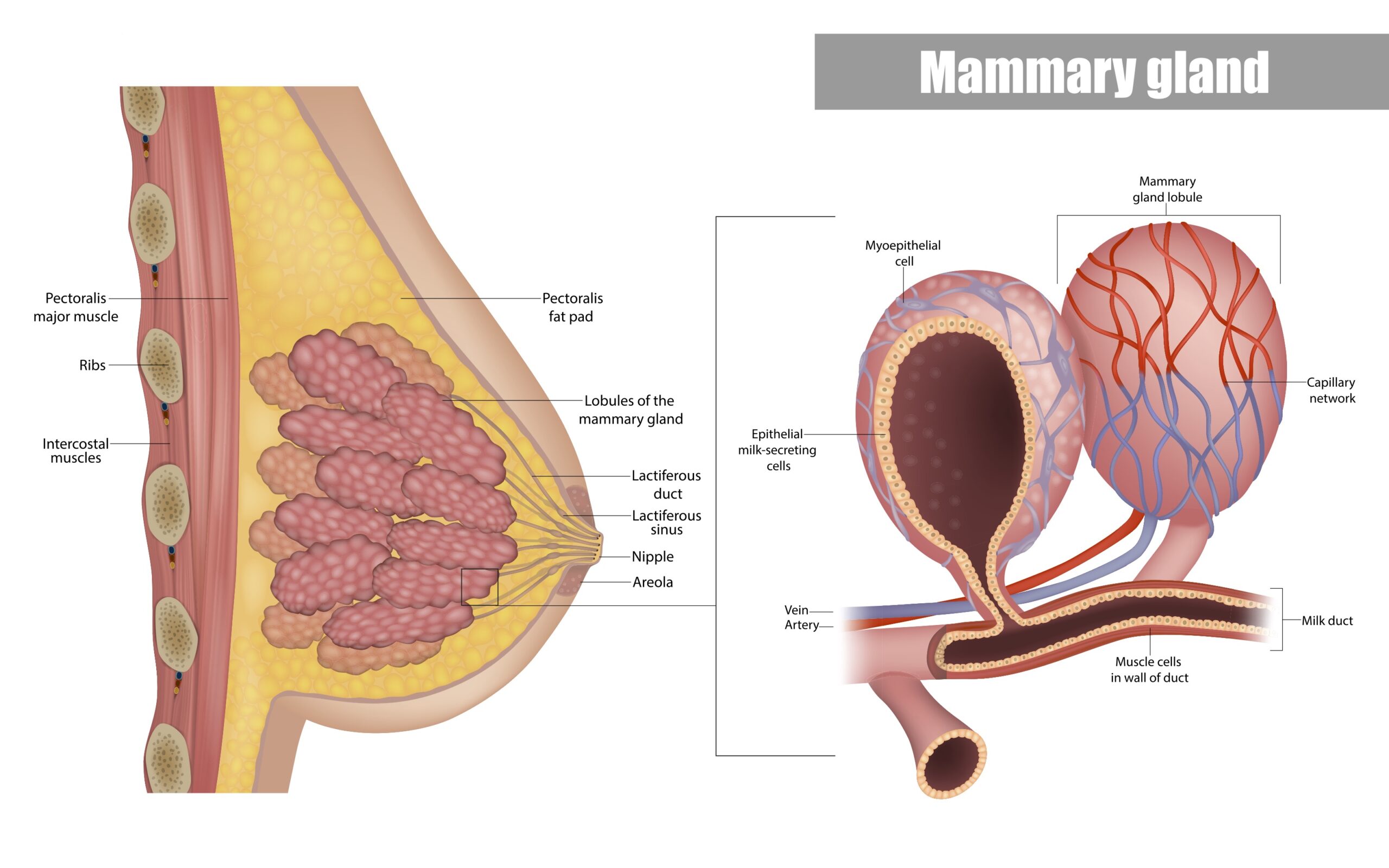
How Cosmetic Breast Implants Affect Breastfeeding
Breast augmentation remains one of the most popular cosmetic surgeries worldwide.1 Many of our Little Rock, AR patients have questions about the potential ramifications, especially in relation to breastfeeding. The good news is that breast augmentation with implants does not decrease the ability to breastfeed for most women.2
Anatomy of the Breast and Milk Production
Before we examine the direct effects of implants on breastfeeding, it’s essential to understand the anatomy of the breasts. The breasts contain glandular tissue responsible for milk production. Milk travels from these glands through ducts and is secreted through the nipple.
Surgical Approaches and Breastfeeding
Whenever there’s surgery on the breast, there’s an inherent risk to the milk-producing components, either from unintentional damage or from scar tissue that might reshape the milk ducts or tubules. Surgical procedures are conducted with caution to preserve a patient’s breastfeeding capabilities. The impact of breast augmentation on breastfeeding largely depends on the surgeon’s proficiency in avoiding the nerves associated with lactating.
Potential Complications
For the majority of women with breast implants, their ability to produce milk remains unaffected. However, in cases where the surgery results in significant scarring around the glandular tissue, it could hinder milk production. Additionally, milk flow can be compromised if milk ducts are inadvertently severed or scarred during the procedure, leading to challenges like breast engorgement or blocked ducts. Another critical factor is the sensation in the nipple area. The nerves around the areola play a pivotal role in signaling the brain to produce vital breastfeeding hormones like oxytocin and prolactin. Damage to these nerves could interfere with this essential communication, potentially leading to a reduced milk supply. Lastly, there’s the issue of capsular contracture, a complication where scar tissue forms around the implant, hardening the breast. While this doesn’t directly impact milk production, it can render breastfeeding uncomfortable or even painful. Being aware of these potential complications can help women make informed decisions and seek timely interventions if issues arise.
Breast Augmentation: Pre-Surgery Considerations
If you’re considering breast implants and have aspirations to breastfeed in the future, there are several essential considerations to bear in mind. Firstly, engaging in a candid conversation with your surgeon about your breastfeeding intentions is crucial. A knowledgeable surgeon can offer advice on techniques that reduce potential risks to breastfeeding. Furthermore, you might want to think about the timing of the surgery. It could be advantageous to delay the augmentation until after you’ve expanded your family. By doing so, you ensure that any breast-related changes due to pregnancy and breastfeeding take place prior to the cosmetic procedure. This proactive approach can set you on the path to successfully balancing both your aesthetic goals and your breastfeeding aspirations.
Preparing For Breastfeeding After Breast Surgery
After undergoing breast augmentation, preparing for and managing breastfeeding can come with its own set of challenges and considerations. It’s a wise step to engage with a lactation consultant even before your baby’s arrival. These professionals can offer valuable advice and strategies tailored to your specific circumstances, ensuring you feel supported and well-equipped. Monitoring your milk supply becomes especially vital. You can gauge if your baby is receiving sufficient nutrition by keeping an eye on their weight gain, counting wet diapers, and observing their feeding behavior. If any complications such as blocked ducts, mastitis, or nipple discomfort arise, it’s essential to promptly seek medical guidance. Being proactive and staying informed post-surgery can significantly enhance your breastfeeding experience.
Ensuring a Smooth Breastfeeding Journey
Breast implants rarely interfere with breastfeeding, and with proper surgical techniques, the risks are further minimized. It’s important to be informed, plan ahead, and maintain open communication with your plastic surgeon. Remember, the decision to breastfeed and how to go about it is deeply personal, and many factors contribute to the overall experience. Whether you have implants or not, seeking guidance and support can ensure a smoother breastfeeding journey for both you and your baby.
1 ISAPS. Global Survey 2022. Available: https://www.isaps.org/discover/about-isaps/global-statistics/reports-and-press-releases/global-survey-2022-full-report-and-press-releases/. Accessed October 30, 2023.
2 Johns Hopkins Medicine. Think You Can’t Breastfeed After Implants? Think Again. Available: https://www.hopkinsmedicine.org/health/wellness-and-prevention/think-you-cant-breastfeed-after-implants-think-again. Accessed October 30, 2023.